Silencer Saturday #385: The Big Beautiful Bill & The NFA

Good afternoon, everyone, and welcome back to TFB’s Silencer Saturday, brought to you by Yankee Hill Machine, manufacturers of the new Victra-12 shotgun suppressor. This week, we are focused on the legislative front and possible changes to the National Firearms Act. That’s right, there really may be something big brewing.
Silencer Saturday @ TFB:
- Silencer Saturday #384: The “DIY-DF” 10/22 Clone
- Silencer Saturday #383: The Welrod's Return?
- Silencer Saturday #382: Noveske's New Amigo
- Silencer Saturday #381: Engaged Industries Operator 5.56 Suppressor
- Silencer Saturday #380: Suppressors V. Brakes On Competition Guns
How A Bill Becomes A Law
If you remember your Schoolhouse Rock, you can skip this part. But if you don’t, here is the short version. A bill can be introduced in either the Senate or the House (or in both simultaneously, but that is not as common). That chamber will send the bill to a committee which debates the bill and votes on it. If it passes, it goes to the full chamber. After more debate, the full body takes a vote. If successful, the bill goes to the other chamber. The cycle repeats there: through another committee and a vote, then to the floor for the full body.
At any point along that chain, a bill can die. A committee can engage in parliamentary fanangling (that’s a technical term) and stop the bill there. Even if the committee votes the bill out, it can still die before it reaches the floor. And, even if a bill goes all the way through both chambers, if the second chamber makes any changes to the bill, then the original chamber has to agree to the changes through a process called reconciliation. Even after all of that, the President can veto the bill. A veto takes a ⅔ majority vote to override; otherwise, the bill is dead. All of these trapdoors and quicksand patches help explain (at least in part) why it is so very hard for Congress to successfully make laws.
Senate Tax Bill
As of the publication of this article, the Senate committee has released its draft bill. It has a lot in common with the House version but is different. Most notably for this audience, it would deregulate a large swath of NFA weapons. But how it does that matters quite a lot.
26 U.S. Code § 5845 contains the definitions for the National Firearms Act of 1934. This is where the famous “automatically more than one shot, without manual reloading, by a single function of the trigger” language that defines a machine gun. How this section defines each category of NFA items matters quite a lot because those definitions are the foundation of figuring out what items the NFA controls. Consider binary triggers, which are not machine guns because they only fire one shot per single function of the trigger. How these terms are defined is absolutely critical to how the law applies.
Section 5845(a) currently reads:
“(a)Firearm
The term “firearm” means (1) a shotgun having a barrel or barrels of less than 18 inches in length; (2) a weapon made from a shotgun if such weapon as modified has an overall length of less than 26 inches or a barrel or barrels of less than 18 inches in length; (3) a rifle having a barrel or barrels of less than 16 inches in length; (4) a weapon made from a rifle if such weapon as modified has an overall length of less than 26 inches or a barrel or barrels of less than 16 inches in length; (5) any other weapon, as defined in subsection (e); (6) a machinegun; (7) any silencer (as defined in section 921 of title 18, United States Code); and (8) a destructive device. The term “firearm” shall not include an antique firearm or any device (other than a machinegun or destructive device) which, although designed as a weapon, the Secretary finds by reason of the date of its manufacture, value, design, and other characteristics is primarily a collector’s item and is not likely to be used as a weapon.”
The Senate version of the bill contains this language:
“Section 5845(a) is amended by striking the first sentence and inserting the following: ‘The term ‘firearm’ means a machinegun or a destructive device.’’’
Here is how that language ends up with the edits from this bill:
(a)Firearm
The term “firearm” means (1) a shotgun having a barrel or barrels of less than 18 inches in length; (2) a weapon made from a shotgun if such weapon as modified has an overall length of less than 26 inches or a barrel or barrels of less than 18 inches in length; (3) a rifle having a barrel or barrels of less than 16 inches in length; (4) a weapon made from a rifle if such weapon as modified has an overall length of less than 26 inches or a barrel or barrels of less than 16 inches in length; (5) any other weapon, as defined in subsection (e); (6) a machinegun; (7) any silencer (as defined in section 921 of title 18, United States Code); and (8) a destructive device. The term ‘firearm’ means a machinegun or a destructive device. The term “firearm” shall not include an antique firearm or any device (other than a machinegun or destructive device) which, although designed as a weapon, the Secretary finds by reason of the date of its manufacture, value, design, and other characteristics is primarily a collector’s item and is not likely to be used as a weapon.
This is a huge deal. Any time that the NFA uses the term “firearm” to describe something regulated by the NFA, it would only mean a machinegun or a destructive device! This fully and completely removes silencers, short-barrel rifles, short-barrel shotguns, and AOWs from the NFA. This is not taking the tax to $0 of some other half-measure. This is a full repeal as to those categories of firearms.
Another thoughtful change to the law is an edit at § 5841. Some state laws only allow NFA items that are properly registered under the NFA. If those laws stay on the books after the NFA provisions for those items are removed, it could put the owners in a tough spot. How do you show your state law enforcement that you have a valid tax stamp if the ATF isn’t issuing them anymore? This edit states that those items are still to be considered as meeting the registration or licensure requirements for state and local law purposes.
Will It Pass?
The Senate has a reputation as the graveyard of bills. Some of that reputation is from intentional design choices by the Founding Fathers, like giving Senators six-year terms. The Senate is meant to be more reserved and to take its time. But it is also the home of the filibuster. That parliamentary maneuver is where someone takes the pulpit, begins speaking, and refuses to stop. The Senate can’t move on until that speaker sits down, so it is a legislative version of running out the clock at the end of a game when your team is up.
The modern iteration of the filibuster is more restrained, and we seldom see a Senator engage in an actual speaking filibuster. Senate floor time is incredibly valuable, and time spent reading Dr. Seuss books or talking about football during the record 25-hour filibuster of Senator Booker is time not spent on matters like naming post offices and confirming generals. For this reason, most filibusters are not “real.” One side threatens to filibuster, and the other believes them. They then have to get 60 votes for “cloture.” In practice, this means that any bill in the Senate needs 60 votes to pass.
This particular bill does not have to face that hurdle. This is a budget reconciliation bill that sidesteps the filibuster because it only impacts fiscal policy matters. The real finangling will come to getting the House and the Senate to agree. But if that is possible, this bill could pass with only 51 votes. There is also the “Byrd rule,” which means that non-fiscal provisions in this kind of bill will be struck. That is not likely to impact the NFA changes because decisions around which things do or do not need tax stamps has a pretty clear fiscal impact. If you are interested in more info on reconciliation and the Byrd rule, here is a very good summary article that outlines those processes.
Conclusion
This bill has not passed, so anything can still happen. Provisions can still be added and removed at any time. If the House and Senate can't agree on language, the bill won't pass at all. It's even possible that the bill does get through both chambers only to be vetoed by the President. Never, ever, ever count your chickens before they legislatively hatch. But even with all those caveats, this is the most realistic shot that the HPA and SHORT acts have ever had of passing. We will absolutely be keeping our eyes on this one.
SILENCER SHOP – HANSOHN BROTHERS – DEADEYE GUNS
MAC TACTICAL
ALL YHM PRODUCTS AT BROWNELLS
DEALERS: If you want your link to buy YHM suppressors included in future Silencer Saturday posts, email: silencers@thefirearmblog.com

AKA @fromtheguncounter on Instagram. Gun nerd, reloader, attorney, and mediocre hunter.
More by Daniel Y
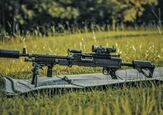

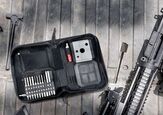




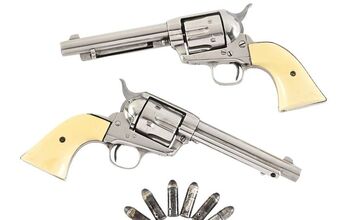
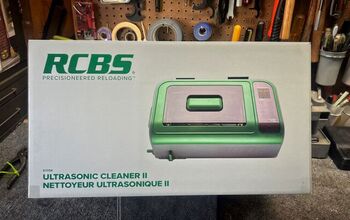




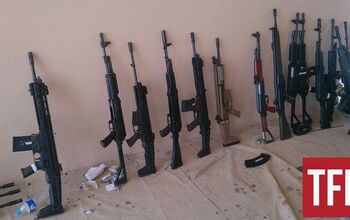
![[SHOT 2025] EAA Debuts Match 2311 Pistols](https://cdn-fastly.thefirearmblog.com/media/2025/01/28/00182/shot-2025-eaa-debuts-match-2311-pistols.jpg?size=350x220)


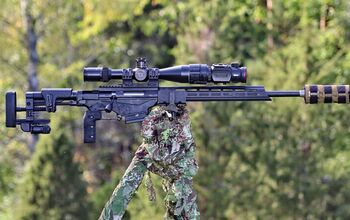
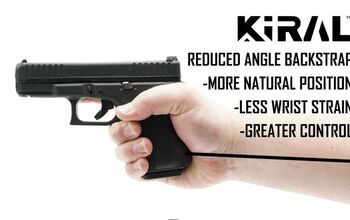
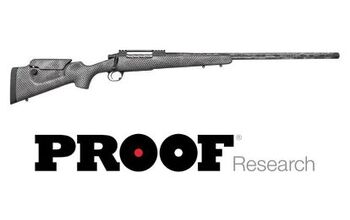



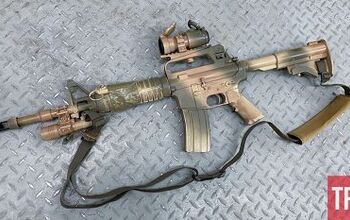
Comments
Join the conversation
I am so ready for a short, lightweight 22 rifle. The 10 inch Crickett pistol in a good stock seems like a good idea.
To Rob139(etc.):
I don't know how we got from NFA to government-paid health care, but consider this: When you need to see a doctor today, they'll get you in as fast as they can, because you're putting money in their pockets. In a government-run system, you're just another expense, like paper or gasoline, and it's in the government's interest to delay the expense of treating you as long as possible, and if you die in the meantime, that's money the government doesn't have to spend. That's why in Canada roughly 30 people a day die on the waiting list for medical treatment, and the sixth-largest cause of death is euthanasia. (They call it MAID, Medical Assistance In Dying, to make it sound better, but it's still exactly what Dr. Kervorkian went to prison for.)
Amazing the deficiency of Reading Comprehension some people have about "Firearms NOT Politics," ain't it?